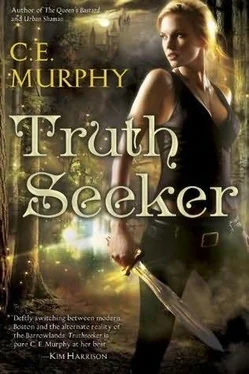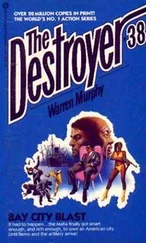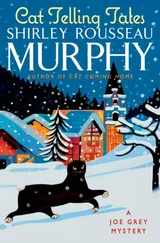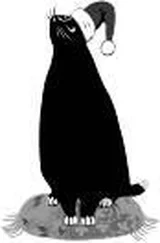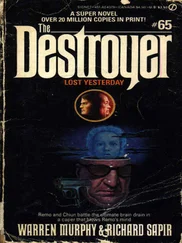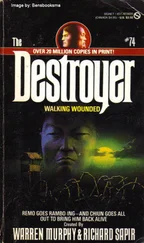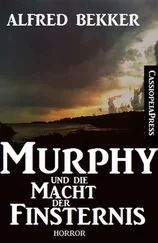They fell regardless, striking the frozen surface of the pool and hissing. Heat spread, thinning ice, and Lara caught a glimpse of her own wide-eyed expression before blinding sunlight shot out of the basin. The reflection was painful, ricocheting migraine auras through her vision, and she jerked a hand upward, trying to cover her eyes.
Instead, Emyr’s hand came down over hers in an icy, unforgiving touch that forbade her to move. She yanked, trying to pull free, and his grip tightened, numbing her fingers until she thought they were frozen against the basin’s edge.
He nodded, one sharp silent motion, when her eyes met his: nodded toward the basin, returning her attention to it. Both furious and frightened, she gave up trying to free her hand and looked back into the brilliant water.
Sunlight still glared around the basin’s sides, but it had faded from the center, leaving a gem-blue sky over fields seething with green and black and white and red. It took long seconds for the writhing images to resolve in Lara’s mind.
Then, as if someone had taken blinders from her eyes, the inexplicable mass became men and women, hundreds of them, even thousands, all clashing together beneath the clear sky. Fewer than half the warriors had the light-colored hair that marked the Seelie. The greater number had darker hair, black and brown and deep copper red: the Unseelie army, Lara guessed, whose coloring made them look like the other half of the too-pale Seelie people to her eyes. They looked complete, even coming together as enemies instead of as a homogeneous whole.
And to play up their differences—it could only be deliberate—the warring factions wore armor of moonlight and of sable, drawn together by nothing but the spatter of red blood as bodies fell. In the abstract, it was beautiful.
In truth, it was terrible. Lara cried out, a sound of protest she couldn’t stop, but her hands refused to obey a command to release the basin’s edge. Across the battlefield, the warriors stopped, looking skyward, as though they’d heard her voice and were searching for its source. Heartened by the idea that she could be heard, Lara drew breath to demand they stop.
Her words were blocked by fingertips over her lips, Dafydd’s eyes regretful as he shook his head. Lara jerked her head away, looking back to the basin, but the moment was lost: on the field, battle heat overtook the brief pause, and soldiers again began to fall beneath swords and arrows.
An arrowhead of midnight-armored warriors appeared, coming out of the massed ranks as though magic had guided them to thrust deep into Seelie territory. It wasn’t impossible that magic had . Seelie warriors fell on the dark-clad soldiers, but their leader caught Lara’s eye, drawing her attention.
The images in the basin shifted, closing in on the arrowhead like a lens pulling in for a close-up. Once; then a second time, narrowing down to a youth in black armor who used his sword as though it were a part of himself. It took a moment for Lara to understand why he’d caught her attention, and then her breath disappeared from her lungs. He was fair-haired, fair-skinned, and leading a host of fighters much darker than he was. She knew who he was, knew it with the ringing clarity of truth that dogged her even when she might have preferred ignorance. Knew it, and knew that Emyr would not forgive her for showing him what they all now saw.
Ioan ap Caerwyn, son of the Seelie king, led the Unseelie army against his own people.
Lara flung herself back, escaping Emyr’s grip. The images in the water ruptured in a burst of ice and fog, Ioan’s face lingering for a few seconds in the shards that fell to the floor. Dafydd stared at them, then jerked his attention to Emyr, and to the failed magic of the scrying pool. Lara, trembling, looked from man to man, and whispered, “What happened?”
“It shouldn’t have happened,” Dafydd said when it became clear Emyr would not speak. “The pool, the magic, they belong to the king, but he didn’t—” He broke off, staring at Lara again, then passed a hand over his eyes as if trying to pull composure together by hiding his face. “He had not yet cast the scrying spell, Lara. He couldn’t, with your presence pulling the warp and weft of the Barrow-lands’ magic.”
“Scrying spell,” Lara breathed. “That’s what that was? It was—It was like somewhere else came to life in the ice.”
“As you say.” Dafydd carefully didn’t look toward his father, but Lara did, and cringed at the coldness of his expression. “No one should have been able to awaken what is Emyr’s to command, Lara, least of all a mortal. And even if someone else had the power to awaken it, you shouldn’t have been able to call forth future visions.”
“Fut—Is that what that was?” Not for the first time, Lara thought it would be easier to take refuge in disbelief, but the strength and tenor of Dafydd’s voice brooked no room for lies.
“It was.” Dafydd crossed to the pool, staring into its waters again, and spoke more to Emyr than Lara, but more to himself than anyone else present, she thought. “Truthseekers could once predict a thing, and make it true through force of will.”
“The pool,” Emyr said icily, “is meant to show things that are, not what may be.”
“Is it so different?” Dafydd kept his gaze on the still waters. Lara retreated from them both, falling into silence in lieu of disappearing from their presence entirely. “Perhaps in a truthseeker’s hands it’s as easily a tool to show what will be. I wonder what it might have shown had Merrick lived.”
“You mean would it show him fighting for our people as Ioan has chosen to fight with the Unseelie?” Sarcasm ran thick through Emyr’s voice. “You would expect him to don our moonlight armor and fight at your side, and be betrayed should he choose otherwise. And yet I am betrayed that Ioan sides with his foster family.” He released the basin and stepped away more slowly than Lara had, expression too remote to be angry. “What have you done?” he said softly, and the question was for neither Lara nor Dafydd. It might have been for Emyr himself: he, after all, had sent his son away as hostage, and in so doing had, it seemed, given Hafgan a coveted second heir.
“You never saw Merrick as your son,” Dafydd whispered unexpectedly, hearing something in Emyr’s question that Lara couldn’t. “You never dreamed that Ioan might accept another as a father. He was a child, Father. He was a boy when you sent him to the Unseelie court. They were the family he knew. Yes, I would have expected Merrick to fight by my side, and so I can believe that Ioan might fight by Hafgan’s. That’s what he’s done. Why he’s done it.” Silence drew out before he murmured “I’m sorry” with such an ache Lara’s heart hurt to hear it.
Lara found her voice in the echoes of Dafydd’s speech, and pushed herself away from the wall, determined to understand more clearly. Emyr focused on her as she moved, and Dafydd made a short, awkward motion, like he wanted to warn her away from coming to his father’s attention. Too late: having captured it, she stood tall and met the monarch’s gaze. “Why wouldn’t you let me go, or let me talk?”
“Because when the pool is awakened only the spellcaster can guide or release the magic, and I had things I needed to see before you let it go.” There was no anger in Emyr’s voice, but his control, his containment, was worse. Dafydd, apparently liking it no more than she did, stepped forward a second time, almost putting himself between Lara and his father. Emyr gave him a withering glance, then looked back at Lara. “Speech travels through the scrying spell, and we looked on a day that has not yet dawned. You couldn’t be allowed to speak and perhaps affect that day through what you do not know of its making.”
Читать дальше
